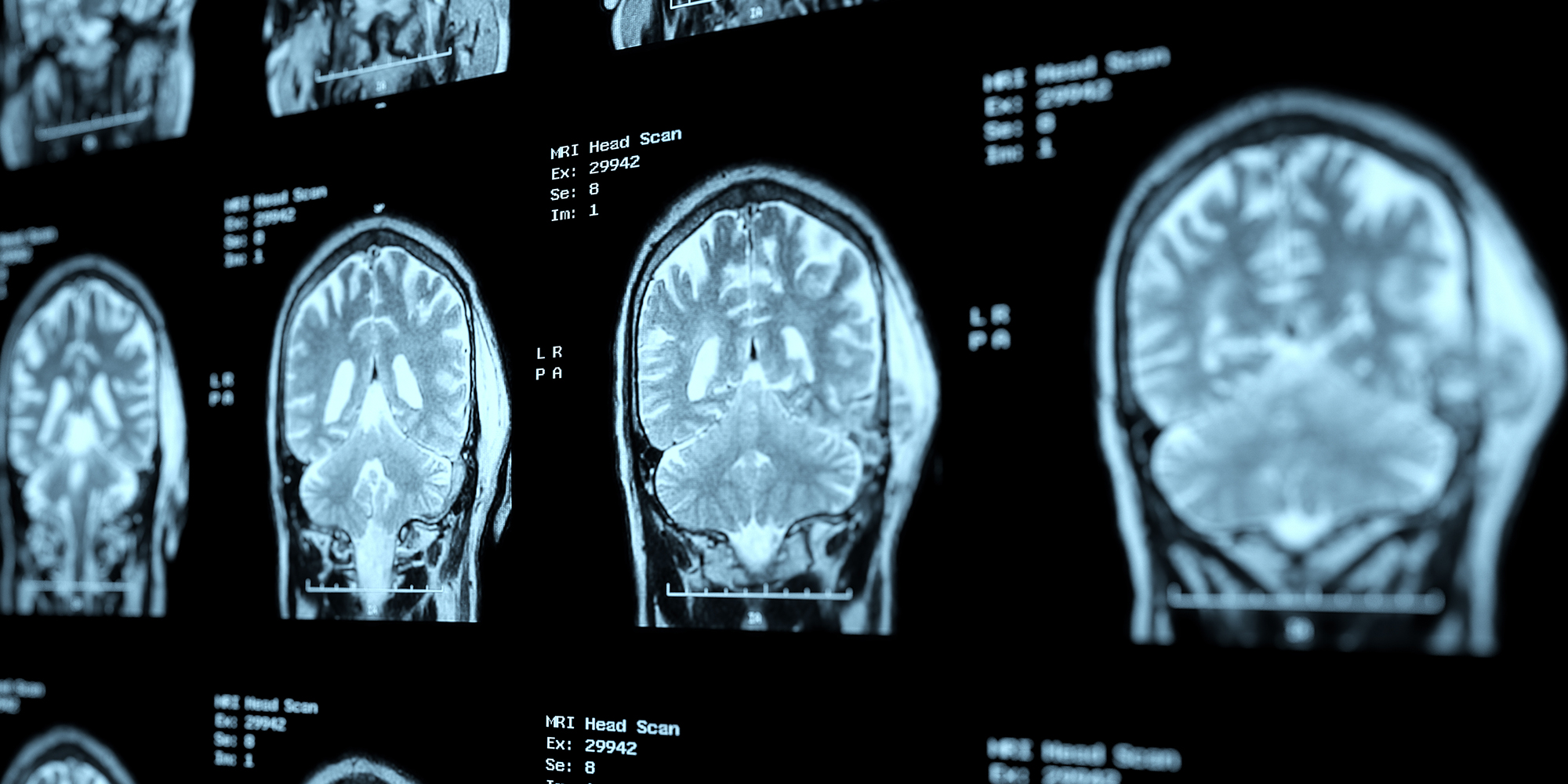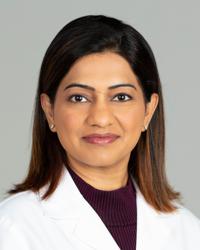Innovations In Treating Primary Brain Cancer
March 14, 2022
Categories: Neurology & Neurosurgery, Cancer Care
 Jigisha Thakkar, MD, Neuro-Oncology
Jigisha Thakkar, MD, Neuro-Oncology
Innovations in diagnosis and treatment have transformed cancer care. People with all types of cancer are living longer, healthier lives.
For people with brain cancer, advances in surgery, radiation therapy and medical therapy mean better options and fewer side effects.
Loyola Medicine neuro-oncologist, Jigisha Thakkar, MD, helps patients with brain cancer understand the complexities of these new treatment options.
She’s part of a comprehensive neuro-oncology team that combines their expertise to identify the best treatments for each patient.
“When it comes to your treatment plan, it should be a sit-down discussion between you and your oncologist,” says Dr. Thakkar.
"You don’t need to just go with a standard treatment protocol. Your physician should customize your plan based on the treatments available and your preferences.” Indeed, a hallmark of brain cancer care at Loyola is leading-edge treatment tailored to you.
Understanding brain cancer
Brain tumors can develop in the brain (primary brain tumor) or spread from cancers located elsewhere in the body (secondary tumor or metastases). Approximately 453,623 central nervous system tumors are diagnosed each year. There are many types of brain cancer, each classified by the type of cell involved. Three of the most common types are:
- Metastatic brain tumors: These are tumors spread from other cancers in the body to the brain. Survival of metastatic tumors has significantly improved with advances in management (new chemotherapeutic agents that can penetrate the brain including immunotherapy and targeted therapy) as well as radiation therapy and surgical techniques. Large tumors can be surgically removed. Smaller tumors can be treated with radiation alone or chemotherapy agents that can cross the brain. Treatment decisions are based on number of tumors, size of tumors and tumor biology.
- Glioma: Glioma is a common brain tumor that originates in the nervous system and does not have a tendency to spread to other parts of the body. Gliomas have different subtypes which have different outcomes, the most aggressive being glioblastoma. Advances in molecular genetics has advanced our understanding of these tumors and revolutionized diagnosis as well as management of these tumors. Management involves surgery, radiation and chemotherapy. Multiple clinical trials are investigating new treatments for this tumor type.
- Meningioma: This is the most common type of benign brain tumor. But there are aggressive forms of meningioma that need a more complex treatment approach. Recent advances in understating the molecular genetics of these tumors are paving the way to improvements in treatment.
Innovations in neuro-oncology
An innovative neuro-oncology program relies on a diverse, well-trained team.
“To offer the latest therapies and technologies, you need surgeons, radiologists, oncologists and pathologists with specific expertise in brain tumors,” said Dr. Thakkar.
“My colleagues at Loyola have that expertise. And through research and early adoption of new clinical practices, we provide treatments not widely available in the Chicagoland area.”
Highlights of these treatments include:
- Neurosurgery
- Radiation therapy
- Medical therapy
Neurosurgery
Surgery is the standard treatment for brain cancer. One challenge with surgery is removing the tumor completely.
Loyola neurosurgeons use the latest technologies to eliminate as many cancer cells as possible during surgery with use of cutting-edge technology. These include use of several state-of-the-art treatments for patients with glioma and glioblastoma:
- Fluorescent dye: Patients receive the dye orally or through an IV before surgery. The dye sticks to the cancer cells and lights up when viewed with a microscope. The dyed cells allow the surgeon to distinguish cancer cells from healthy cells and remove the tumor and its edges more completely.
- Interstitial chemotherapy: The surgeon places a chemotherapy disc in the brain after removing the tumor. The wafer slowly delivers the chemotherapy agent to the surrounding area, destroying any remaining cancer cells. Doctors may recommend this approach based on tumor location and tumor biology.
- Intraoperative radiation therapy (IORT): A radiation oncologist, who specializes in using radiation to treat cancer, delivers a precise dose of radiation during surgery. By treating the area after the surgeon removes the tumor, IORT helps destroy remaining cancer cells. A clinical trial (INTRAGO II) is currently underway and offers this therapy for eligible patients.
Medical therapy
Chemotherapy is a standard treatment for most types of cancers. Though it effectively destroys cancer cells, it also damages healthy cells, which causes many side effects.
New classes of medical therapy that are more specific, more effective and often less toxic are rapidly evolving. Oncologists use them along with or instead of chemotherapy:
- Immunotherapy: These treatments use your body’s immune cells to destroy cancer cells.
- Targeted therapy: These drugs disrupt the molecular processes that help tumor cells grow.
Immunotherapy and targeted therapy are specific to certain types of tumors. To determine if a tumor will respond, oncologists use next-generation sequencing. This genetic test looks for certain molecules in the tumor cells that these therapies target.
By understanding the molecular makeup of the tumor, your physician can choose the most effective treatment. At Loyola, next-generation sequencing is an option for all patients with brain tumors.
Brain cancer care at Loyola
A brain cancer diagnosis is life-changing. One day, life is normal; the next, you’re filled with fear and uncertainty. Because many people experience only mild symptoms with primary tumors (headache, slight dizziness) the diagnosis comes as a shock.
Dr. Thakkar says those initial discussions with patients require great care. “From the beginning, our team is vigilant about taking care of our patients’ mental health. We also work closely with patients to manage their symptoms and maintain their quality of life.”
The most common symptoms of brain tumors and their treatment are:
- Fatigue
- Headaches
- Nausea and vomiting
- Seizures
- Brain swelling
“Though the prognosis for some types of brain tumors is not great, many people live for years after a cancer diagnosis,” says Dr. Thakkar.
“Choosing the right treatment to control the tumor and maintain a good quality of life during and after treatment can be challenging. It’s important to go to a cancer center, like Loyola’s, that has deep expertise in treating brain tumors and access to the latest diagnostic technology.”
Dr. Thakkar sees patients at the Cardinal Bernardin Cancer Center at Loyola University Medical Center, Loyola Medicine Burr Ridge, MacNeal Hospital and the Loyola Outpatient Center. To make an appointment today, call 888-584-7888 or schedule an appointment online.
Jigisha Thakkar, MD, is a neuro-oncologist at Loyola Medicine. She is board certified in neurology and specializes in treating adult brain tumors. Her research interests include understanding how brain tumors develop and identifying new treatments.
Dr. Thakkar received her medical degree from Maharashtra University of Health Sciences. She completed her residency at University of Kentucky HealthCare and her fellowship at Northwestern Memorial Hospital.
Book an appointment today to see Dr. Thakkar or another Loyola specialist by self-scheduling an in-person or virtual appointment using myLoyola.
